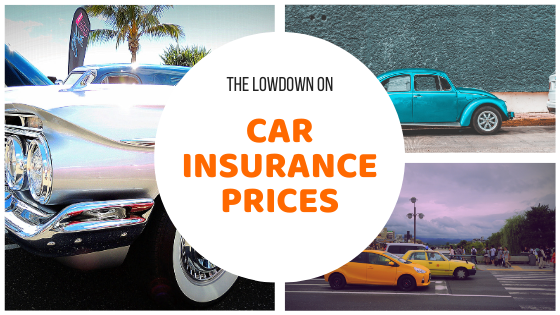Grab your calculator, because we’re about to add up some auto insurance price factors!
Whether you live in Fayetteville, Arkansas, or elsewhere, you may be wondering about what impacts your car insurance prices. There are many misunderstandings about car insurance rates and how they are calculated, so we want to shed some light on the reality of your auto insurance rates and debunk those misconceptions!
Age
Typically, car insurance prices decrease as you get older until you reach about 75 years of age. You will usually see a decrease in rates between the ages of 19 and 25, and then they are more stable.
Something to note, however, is that your rates are tied more to how long you’ve been driving, not just your actual age. Younger drivers are more prone to have an accident or be risky while driving, so insurance providers usually charge more for young drivers.
If you’re looking to get your teenager their own car insurance policy, you may want to hit the brakes. It is usually cheaper to add your teenage driver to your existing policy, instead of creating a whole new one.
Also, most companies offer a Good Student Discount to help out your wallet, so be sure to ask your insurance provider about discount options.
Vehicle Use
Whether you’re driving cross-country or just around the block each day, your vehicle usage is accounted for in your car insurance prices. For G&G Independent Insurance, we check to see if you drive more or less than 8,000 miles annually. If you drive less than 8,000 miles, you may be eligible for a discount on your car insurance rates. The more you drive your vehicle, the more your car insurance rates will be.
Speeding and Traffic Tickets
We’ve all been there. We are late to work and rushing as fast as we can when we see the flashing lights in the rearview mirror. Nobody wants to be pulled over and get a speeding ticket! If it is your first speeding ticket in a three- to five-year period, you may not see your rates increase.
However, if you have a lead foot and multiple tickets, you will more than likely have an increase in your car insurance prices. The good news is you’re not stuck with those rising costs forever! After a few years, your speeding tickets are no longer accounted for on your driving record.
Parking tickets are different than speeding tickets. Parking tickets will not affect your insurance premium (no matter how many you rack up!).
At-fault Accidents
Imagine this: You’re driving in Fayetteville, Arkansas when a squirrel darts into the road. Being you’re the animal lover that you are, you swerve to avoid the furry creature and side-swipe the car next to you.
Since the accident was your fault, it will probably affect your car insurance prices. Like speeding tickets, most at-fault accidents are going to raise your rate until they fall off your record in a few years.
Each insurance provider is different, but most companies wait three to five years before they stop counting at-fault accidents in their rates.
Not-at-fault and one-car accidents
Not-at-fault accidents are a complicated situation, but the basic idea is that it is based on both the state you live in and your insurance company. Some insurance providers see a not-at-fault accident as posing a higher risk for more accidents and will raise your premiums, while others do not. It all depends, so be sure to ask your insurance agency in Fayetteville about their rules on not-at-fault accidents.
If you drive into a pole or have another form of a one-car accident, you are considered at fault, which can cause auto insurance costs to go up.
Location
Believe it or not, your ZIP code is very telling about your insurance rates. If you live in a highly populated area, you have a higher risk of theft, collision, and other damage to your car. If this is the case for you, you will probably pay more for your comprehensive and collision coverage because of the risks of a populous region.
Car Insurance Coverages
Every person’s auto insurance policy is different, depending on the coverages and deductibles they have. Typically, if you have more coverage, you will have a higher insurance rate. The upside is that you can sometimes add thousands’ worth of coverage and only see a small price change!
Another factor is your deductible. Your deductible is your out-of-pocket cost if you have a claim. Thus, if you raise your deductible, you will have to take on more expenses in the case of a claim, but you’ll have a lower overall rate and vice versa.
Insurance History
There are two factors from your insurance history that providers use to determine rates: how long you’ve been with the same company and whether you have had gaps or cancellations in your past.
If you have no gaps and if you’ve been with the same insurance provider for a while, you’ll usually get a lower rate. The longer you have been with the same company, the better the discount.
Many other factors go into an auto insurance premium, but these aspects have the greatest impact. If you’re curious about other rate factors in Fayetteville, AR, or you would like a quote, give G&G Independent Insurance a call at 479-802-0096, and we would love to help!




